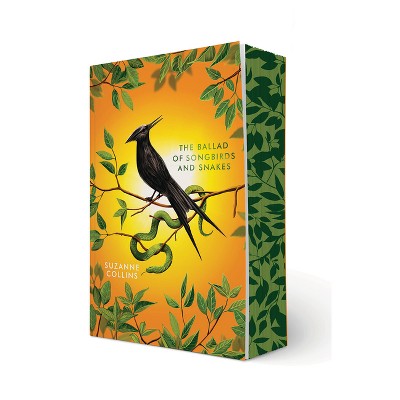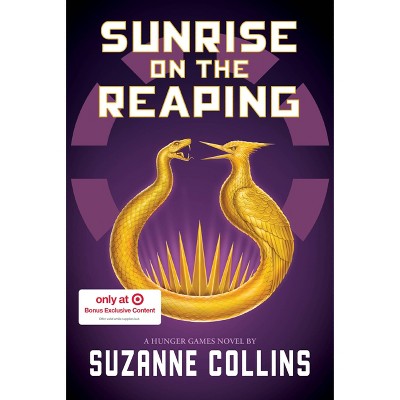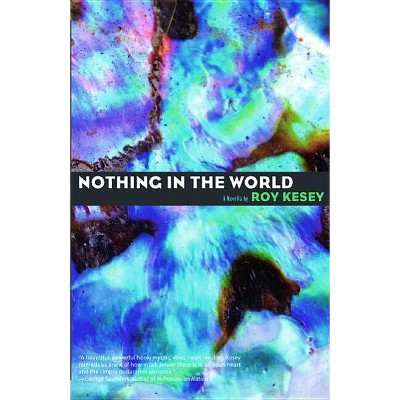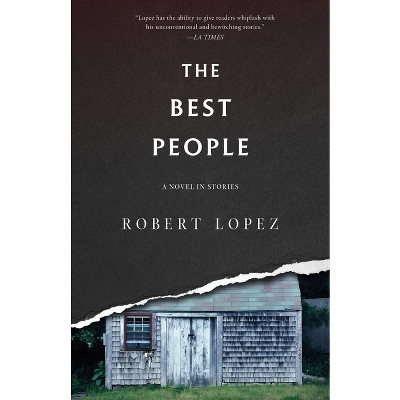Sponsored

The Tavern at the End of History - by Morris Collins (Hardcover)
Pre-order
Sponsored
About this item
Highlights
- Over a span of five days in 2017, two strangers find themselves in a sea-rocked sanitarium on the coast of Maine where, as they gather at an auction for a piece of art stolen in the Second World War, they must reckon with the wounds of inheritance: shame, displacement, and the longing of exiles.Jacob, grandson of a Holocaust survivor, son of refugees, has lived his life overshadowed by the grief of others.
- Author(s): Morris Collins
- 326 Pages
- Fiction + Literature Genres, Jewish
Description
Book Synopsis
Over a span of five days in 2017, two strangers find themselves in a sea-rocked sanitarium on the coast of Maine where, as they gather at an auction for a piece of art stolen in the Second World War, they must reckon with the wounds of inheritance: shame, displacement, and the longing of exiles.
Jacob, grandson of a Holocaust survivor, son of refugees, has lived his life overshadowed by the grief of others. His mistakes have cost him his job and his marriage. So when he meets Baer, an impoverished Holocaust survivor looking for help, Jacob sees an opportunity to redeem himself.
But what Baer wants won't be easy. A piece of art given to him as a boy--and that disappeared during the war--has resurfaced and is about to go up for auction in a secluded sanitarium for Holocaust survivors and their families on an island off the coast of Maine. The head of the sanitarium is Alex Baruch, a disgraced writer and Kabbalist whose memoir about surviving the Holocaust has been denounced as fraudulent. Baer asks Jacob to go to the auction with his niece, Rachel, and steal back the piece.
Rachel carries grief of her own. She's mourning her husband, a young Jew trying to separate himself from his ultra-orthodox community, and instead of living the artist's life she dreamed, she's working in a museum basement answering questions on the phone about paintings she can't see. Grieving and guilty, she's eager for an impossible quest.
Together, Rachel and Jacob head to the sanitarium, where they find Baruch and his community of odd and broken souls. But two nights before the auction, in the midst of a storm, a stranger appears--an old man, a ghost or a dybbuk, or just a survivor of the European catastrophe--bearing a secret. As the line between forgery and authenticity blurs, Rachel and Jacob, Baruch and his followers must face the claims the dead make on the living, in a surreal reckoning with the past where no one is who they say they are, but everyone may be telling the truth.
Recalling the warmth and humor of Nicole Krauss and Joshua Cohen, and the wild collage of history and fantasy of Bruno Schulz and Olga Tokarczuk, The Tavern at the End of History is a deeply felt exploration of grief, love, and identity in the long shadow of twentieth-century calamity.Review Quotes
Praise for The Tavern at the End of History:
"Generations whose stories are informed by the Holocaust converge at a sanitarium by the sea in Morris Collins's surrealistic, affecting novel...written with otherworldly flair, The Tavern at the End of History is about intergenerational wounds and self-forgiveness."
--Foreword Reviews
"An earnest attempt to plumb the depths of Jewish ancestral memory."
--Kirkus Reviews
"I was dazzled by this book: its inventiveness, its sometimes devastating force, its sense of wild and glorious freedom. It is so smart and ambitious it should feel heavy--yet somehow it remains light on its feet and is very, very funny. I read it in a state of wonder."
--Leah Hager Cohen, author of The Grief of Others and Strangers and Cousins
"The Tavern at the End of History is a mysterious tale of angels and dybbuks in modern America. Morris Collins has written a novel that delights and disturbs us at the same time, plunging the reader into a world of fanatics, frauds and escapees. The novel weaves a spell around a work of art that holds us captive from the very first page."
--Jerome Charyn, author of Maria La Divina
"The Tavern at the End of History begins with a gesture of kindness and from that small aperture it leads you steadily onwards into places of exhilarating, wonderful strangeness. This is a novel of ideas, arguments, identity, angels--and yes, history. I loved it."
--Kelly Link, author of Get in Trouble
Past Praise for Horse Latitudes:
"This is the best debut novel of the year, hands down. Comparisons to Joseph Conrad, Graham Greene and Malcolm Lowry practically write themselves, but Horse Latitudes also calls to mind such modern noir greats as James Crumley and Kem Nunn. Ethan's story is a febrile journey into an unknown landscape, a table-side seat at a game of Russian roulette that has no winners. It's also erudite, funny and sexy as hell."
--Rebecca Oppenheimer, Kramerbooks
"A remarkable debut novel, detailing one man's quest for redemption through a quixotic adventure in Central America, couched in brilliant, bold lyricism, flavored with heartbreak and danger. Fast-paced and hypnotic, it holds you in its spell and won't let go, leaving images like exotic souvenirs in its wake."
--William J. Cobb, author of The Bird Saviors
"Horse Latitudes reads like a Graham Greene novel for the twenty-first century, reinventing the citizen abroad for a new global age, one where the quest for redemption and righteousness still rarely leads to clarity, only cloudier choices, unfair outcomes, darker ambiguities. An adventurous moral thriller--and a truly powerful debut."
--Matt Bell, author of In the House upon the Dirt between the Lake and the Woods
"Vivid in the visual detail a photographer would gather, Collins' politically complex and psychologically intense tale demands the reader's complete submersion in a decaying world in which the lines between good and evil sway and vanish...Though the plot twists like that of a thriller and authentic characters keep the story moving, Collins's underlying theme of why choices are made and their consequences makes for a philosophically compelling read."
--Booklist
"Its characters trample through lands on the brink of madness in search of something certain; its images are violent, heartbreaking, and starkly real. A historically attuned novel for a world that has lost its way."
--Foreword Reviews
"One of the most impressive debuts I've read. A hybrid narrative that's part thriller, part surreal noir, and part tropical gothic, it reads like a collaboration between William Faulkner, Louis-Ferdinand Céline, and Hunter S. Thompson, as directed by David Lynch ... Gripping and wildly entertaining."
--NPR, Gabino Iglesias
Shipping details
Return details
Frequently bought together




Trending Literary Fiction






Discover more options







